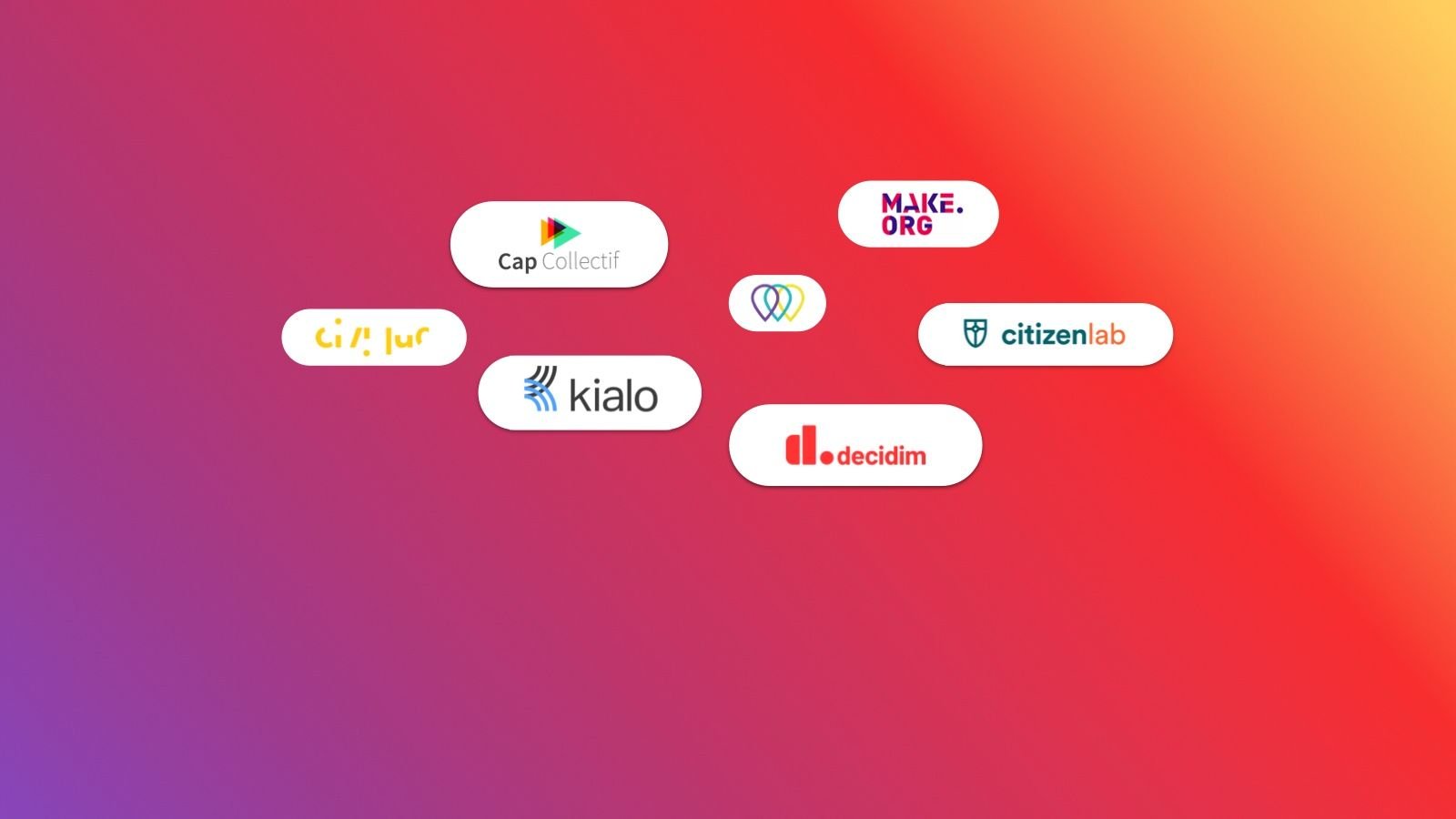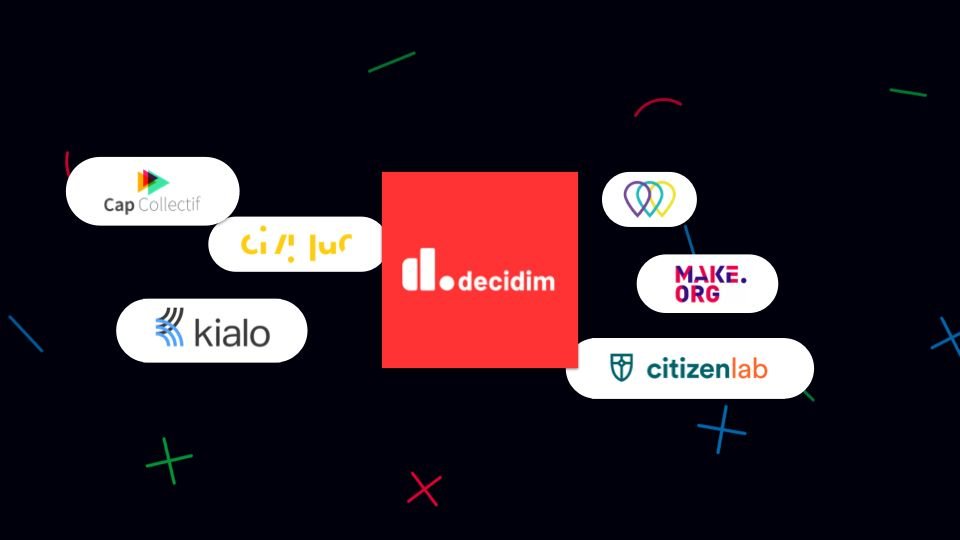An open-source civic tech for participatory democracy in Geneva
At octree, we strongly believe in transparent communication, collective intelligence, distributed distributed governance and open-source. Last year we had the chance to implement a participatory democracy solution in Geneva. Here is a small overview of what has become known as "civic techs".
Democracy remains for most societies a stable but bureaucratic institution, at risk of being parasitized by disinformation, lobbying, and the rise of extremes.
In addition to this, there are certain evils: citizens do not feel involved in decision-making, they do not know what information to trust... in short: they suffer from a feeling of disengagement.
Between sociology, activism, politics, and computer science, several actors around the world are now trying to develop technological solutions to these problems. They have in common a penchant for cooperation and transparency of information: these tools are called Civic Techs.
For LASUR, the Laboratory of Urban Sociology (EPFL), the characteristics of "civic tech" tools make it possible, or promise, to improve or foster the dissemination of information, dialogue between elected officials and citizens, consultation and contribution of citizens, as well as data sharing.
How can you tell the difference between tools that deliver on their promises and those that just sell it?
Political philosophy in the digital age
The need for transparency and accountability of governments to their citizens can be traced back to the Enlightenment and even to ancient Athens, but it was at the turn of the Second World War that initiatives took shape through the principles of open government. This vision took shape in 2011 with the creation of theOpen Government Partnership, which aims to promote transparency in public action and its openness to new forms of consultation and collaboration with civil society.
At the same time, since the beginning of the last century, the world of work has been looking for alternatives to hierarchical authority, which tends to reinforce rigid and unresilient pyramidal structures. The practices resulting from this research are gradually becoming grouped under the name of sociocracy.
Finally, the arrival of information technology in the management of the state reinforces the need for a democratic digital transformation since around 2010, but the management utopia can be traced back to the 1970s with the Cybersin project in Chile.
Local and global initiatives
Since 2010, initiatives of all kinds have been creating new methods and digital solutions for collaborative decision-making, citizen consultation, or direct participation. Whether it is at the local, regional, or national level, these approaches tend above all to facilitate the emergence of citizen initiatives.
Launched in 2019, Participedia.net lists participatory democracy approaches around the world.
These techniques have produced such diversity that several sites allow us to link them. Indeed, the main challenge is to find the best combination of methods to face a set of complex and interconnected problems, which cannot be solved only by an upstream analysis: solutions must emerge nourished by intelligence and collective experiences. Open access allows these solutions to consolidate and remain accessible to all. Cooperation and free access at scale are essential to face society's future challenges.
Open-source or proprietary solutions?
Among the available digital platforms and tools, there are two main categories: the first one makes its code freely available and allows anyone to contribute to it, we talk about open-source solutions. The second category is less transparent: its code cannot be audited by everyone and no one can contribute. These are called proprietary solutions. These choices are often motivated by several reasons: competitive advantage, speed of development (governance and open-source contribution taking more time), or simply lack of commitment to the transparency of processes. However, proprietary solutions can present certain risks: privatization of democracy, lack of data sovereignty for users, or lack of transparency in developing functionalities... A critical mindset remains necessary when choosing a tool or a service provider because, although advantageous in terms of service, proprietary solutions are not always a guarantee of neutrality
Among these proprietary solutions are Kialo, a platform that promotes structured debate, Maptionnaire, a solution for creating questionnaires on a territory via an interactive map, and several solutions that facilitate citizen consultation or dialogue, including Cap Collectif, Make.org, CitizenLab, the Civic mobile app and OpenGov, a North American ERP.
The Decidim example
For open-source solutions, transparency is central to the very creation of the tool and its management, and currently, one of these solutions has many advantages: Decidim.
Launched by Barcelona City Council in 2017, Decidim now benefits from successful international experiences (France, Belgium, Mexico, Finland, and now in Geneva, Switzerland) and open and participatory governance.
As for the functionalities, they are also totally configurable according to the needs of the project: voting, consultation, agenda and other modules are adjustable at will. Decidim thus seems to be a solution adapted not only to public use but also to private use. In addition to its growing community of contributors, the tool has two particularities: first, it greatly favors citizen consultation, whereas many solutions on the market are limited to consultation (i.e., limiting participation to the taking of opinions and not to the creation of projects or collaborative decision making with citizens). Secondly, Decidim puts a special emphasis on transparency: indeed, public data on the platform can be downloaded at any time by visitors and personal data linked to user accounts can be retrieved by them at any time. These details put the citizen at the center of the participatory experience, and give him a place that respects his freedoms.
Based on these observations, the Department of Territory of the State of Geneva mandated Octree in 2019 to set up the first civic-tech platform in Switzerland based on Decidim: Participer.ge.ch. A detailed article will follow to share our feedback on this project and the Decidim technology.
In the meantime, go participate!



